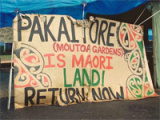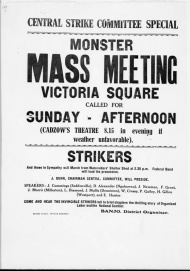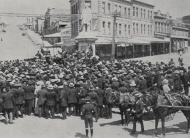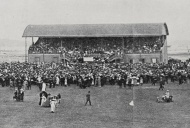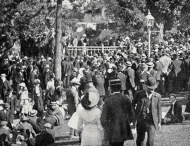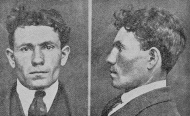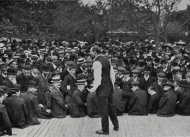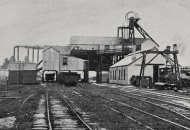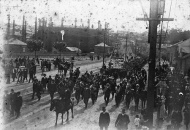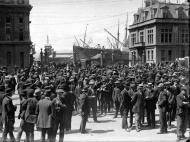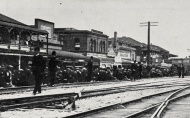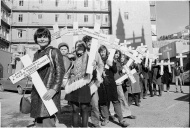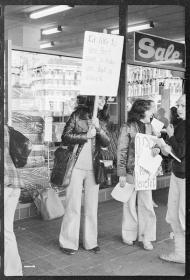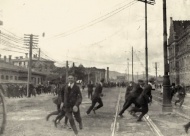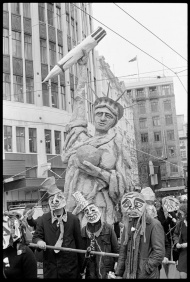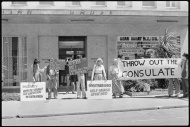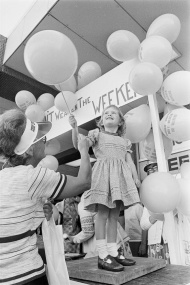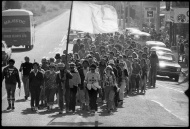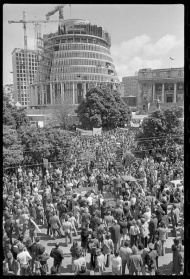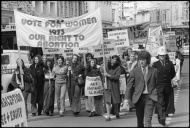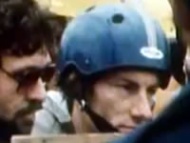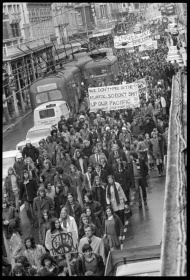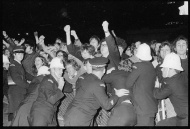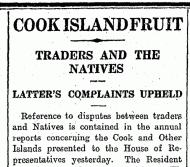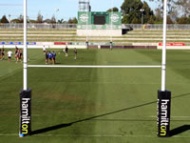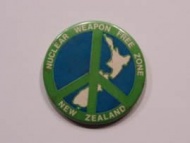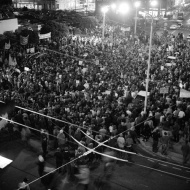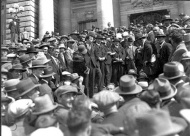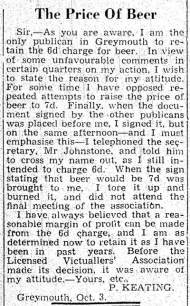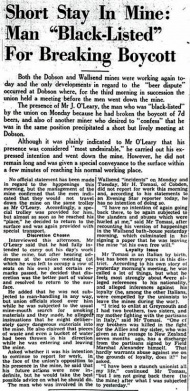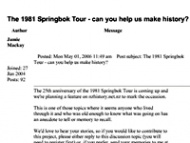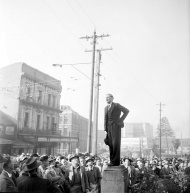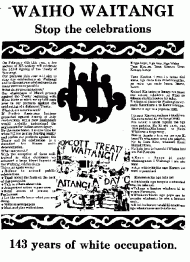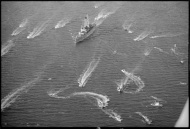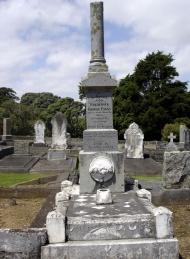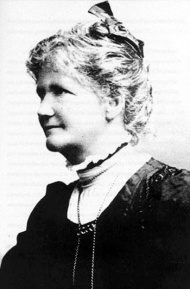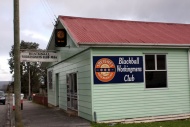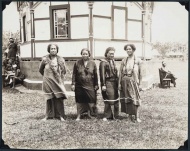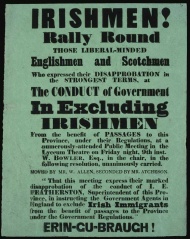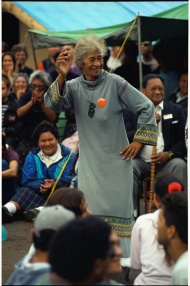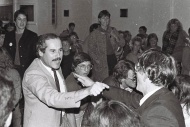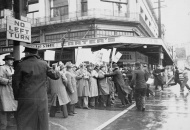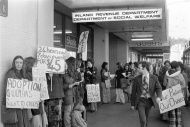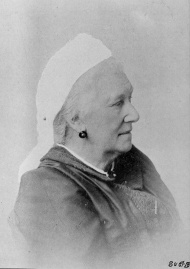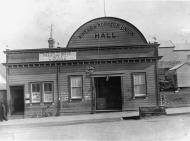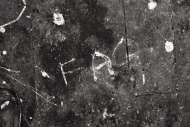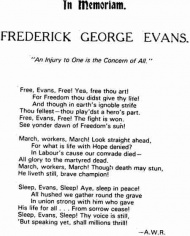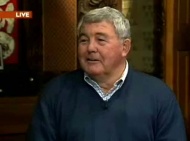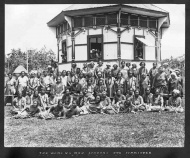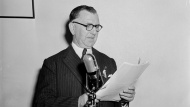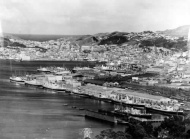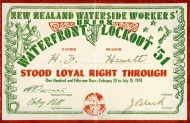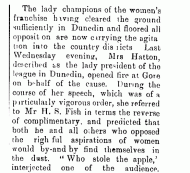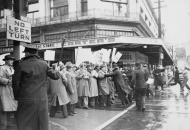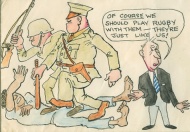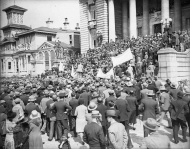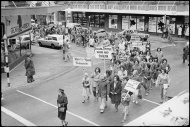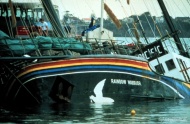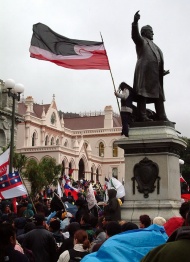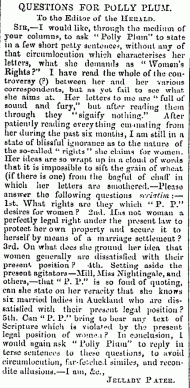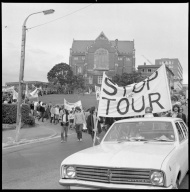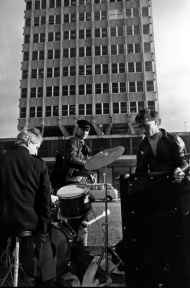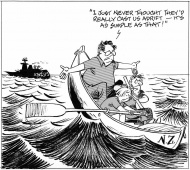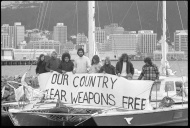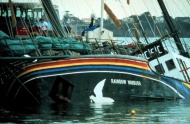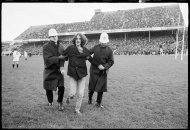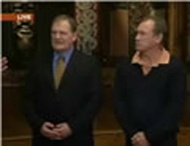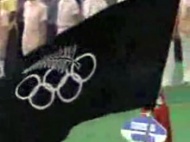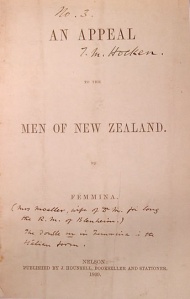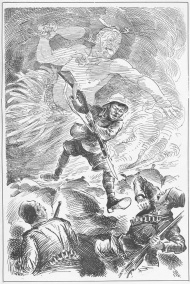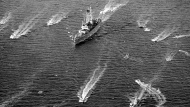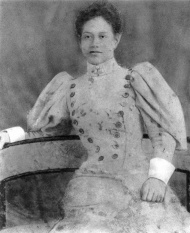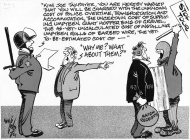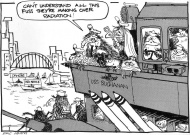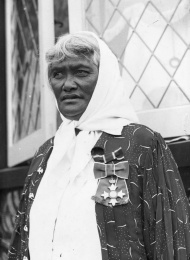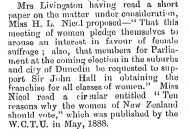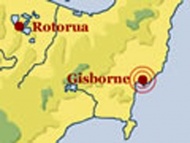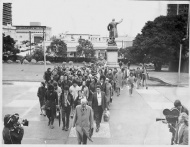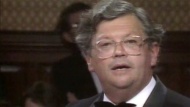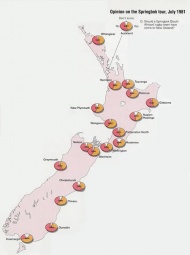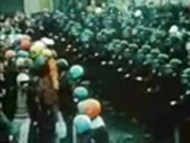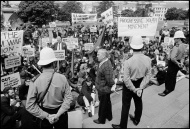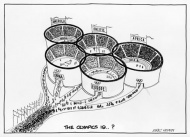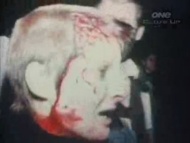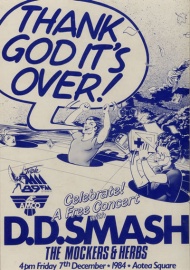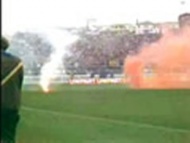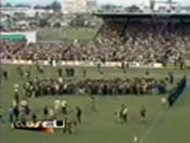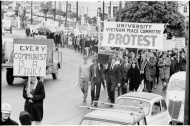Events In History
-
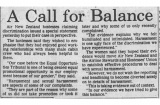 18 December 1988Air New Zealand women cabin crew win anti-discrimination case
18 December 1988Air New Zealand women cabin crew win anti-discrimination caseAir New Zealand was found to be in breach of the Human Rights Act after more than a decade of female cabin crew campaigning for the same opportunities as male workers at the airline. Read more...
-
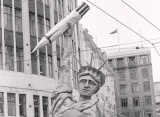 2 August 1983Protest as USS Texas visits Auckland
2 August 1983Protest as USS Texas visits AucklandThe visit of the nuclear-powered guided missile cruiser Texas sparked anti-nuclear rallies on land and sea. Read more...
-
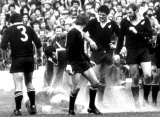 12 September 1981'Flour-bomb test' ends Springbok tour
12 September 1981'Flour-bomb test' ends Springbok tourThe third and deciding rugby test at Eden Park, Auckland, is best remembered for the flares and flour bombs dropped onto the playing field. Outside the ground, violence erupted on an unprecedented scale. Read more...
-
 29 July 1981Police baton anti-tour protesters outside Parliament
29 July 1981Police baton anti-tour protesters outside ParliamentUp to 2000 anti-Springbok tour protesters were confronted by police who used batons to stop them marching up Molesworth St to the home of South Africa's Consul to New Zealand Read more...
-
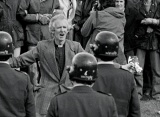 25 July 1981Anti-Springbok protesters block Hamilton match
25 July 1981Anti-Springbok protesters block Hamilton matchAnti-tour demonstrators invaded Hamilton’s Rugby Park, forcing the abandonment of the Springboks–Waikato match. Read more...
-
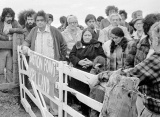 25 May 1978Bastion Point protesters evicted
25 May 1978Bastion Point protesters evictedPolice and army personal removed 222 people from Bastion Point, Auckland, ending an occupation that had begun in January 1977. Ngāti Whātua were protesting against the loss of land in the Ōrakei Block, which had once been declared ‘absolutely inalienable’. Read more...
-
 16 December 1977Contraception, Sterilisation, and Abortion Act passed
16 December 1977Contraception, Sterilisation, and Abortion Act passedThe Act specified the circumstances in which contraceptives could be supplied to young people, sterilisations could be undertaken, and abortions could be authorised. Read more...
-
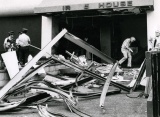 9 September 1976Wanganui Computer legislation enacted
9 September 1976Wanganui Computer legislation enactedThe establishment of New Zealand’s first centralised electronic database through the Wanganui Computer Centre Act focused attention on the state’s ability to gather information about its citizens. Read more...
-
 14 November 1973DPB legislation enacted
14 November 1973DPB legislation enactedThe passage of the Social Security Amendment Act introduced the domestic purposes benefit (DPB) to New Zealand’s social welfare system. Read more...
-
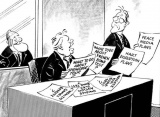 10 April 1973Labour government cancels Springbok rugby tour
10 April 1973Labour government cancels Springbok rugby tourFollowing police warnings of civil strife, Prime Minister Norman Kirk informed the New Zealand Rugby Football Union that the government saw ‘no alternative’ to a 'postponement' of the planned tour by the South African Springboks. Read more...
-
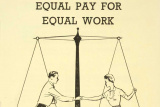 20 October 1972Equal Pay Act passed into law
20 October 1972Equal Pay Act passed into lawThe legislation aimed to end the gender pay gap in the private sector, following earlier legislation which addressed the pay gap for the public service. Read more...
-
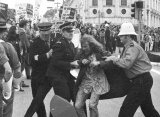 12 May 1971Anti-Vietnam War protests in Auckland
12 May 1971Anti-Vietnam War protests in AucklandAnti-war protesters disrupted a civic reception in Auckland for New Zealand soldiers returning from the Vietnam War. Read more...
-
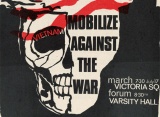 15 January 1970Vietnam War protesters greet US Vice-President
15 January 1970Vietnam War protesters greet US Vice-PresidentUnited States Vice-President Spiro Agnew’s three-day visit to New Zealand sparked some of the most violent anti-Vietnam War demonstrations seen in this country. Read more...
-
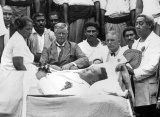 28 December 1929'Black Saturday' in Samoa
28 December 1929'Black Saturday' in SamoaNew Zealand military police fired on Mau independence demonstrators in Apia, killing 11 Samoans, including the independence leader Tupua Tamasese Lealofi III. Read more...
-
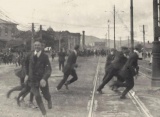 5 November 1913Battle of Featherston Street
5 November 1913Battle of Featherston StreetThe ‘Battle of Featherston Street’, in downtown Wellington, saw some of the most violent street fighting of the 1913 Great Strike. Read more...
-
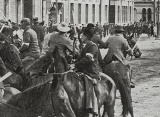 24 October 1913Violence flares on Wellington wharves
24 October 1913Violence flares on Wellington wharvesViolent clashes between unionised waterside workers and non-union labour erupted two days after Wellington’s ‘wharfies’ held a stopwork meeting in support of striking shipwrights. Read more...
-
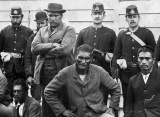 5 May 1898Dog Tax War narrowly averted
5 May 1898Dog Tax War narrowly avertedWar threatened sleepy Hokianga as government troops marched towards armed Māori ‘rebels’. Read more...
Articles
The 1912 Waihi strike

On 'Black Tuesday', 12 November 1912, in the midst of a bitter six-month strike by miners in the small New Zealand goldmining town of Waihi, striker Fred Evans was killed - one of only two fatalities in an industrial dispute in New Zealand's history.
- Page 1 - 'Black Tuesday'On 'Black Tuesday', 12 November 1912, in the midst of a bitter six-month strike by miners in the small New Zealand goldmining town of Waihi, striker Fred Evans was killed - one of
Nuclear-free New Zealand
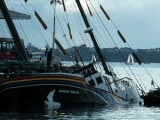
The sinking of the Greenpeace protest ship Rainbow Warrior in Auckland in July 1985 shocked the nation. The incident galvanised an anti-nuclear movement that had emerged in opposition to both French nuclear tests at Mururoa and American warship visits to New Zealand.
-
Page 2 – Nuclear testing in the Pacific
After the Second World War the United States, along with its French and British allies, frequently tested nuclear weapons in the Pacific region.
-
Page 3 – Ship visits
The visit of the nuclear-powered frigate USS Texas in 1983 sparked protest in New Zealand.
-
Page 5 – Sinking the Rainbow Warrior
In 1985 New Zealand was basking in its position as leader of the anti-nuclear movement. Then on 10 July, two explosions set by French Secret Service agents ripped through the
1981 Springbok tour
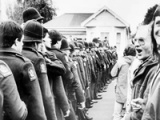
For 56 days in July, August and September 1981, New Zealanders were divided against each other in the largest civil disturbance seen since the 1951 waterfront dispute. The cause of this was the visit of the South African rugby team – the Springboks.
-
Page 2 – All Blacks versus Springboks
Since rugby went professional in 1995 countries like Australia, England and France have challenged New Zealand and South Africa's claims to be the two powerhouses of world
-
Page 3 – Politics and sport
South Africa's apartheid policies and attitudes created obvious problems for New Zealand rugby, given the prominence of Māori in the sport.
-
Page 4 – Stopping the 1973 tour
Keeping sport and politics separate was becoming increasingly difficult. In July 1969 HART (Halt All Racist Tours) was founded by University of Auckland students with the
-
Page 5 – Gleneagles Agreement
The All Blacks accepted an invitation to tour South Africa in 1976, when world attention was fixed on the republic because of the Soweto riots.
-
Page 6 – Battle lines are drawn
Tour supporters were determined that the first Springbok visit to New Zealand since 1965 would not be spoiled. The anti-tour movement was equally determined to show its
-
Page 7 – Tour diary
Select itinerary of the 1981 tour by the Springbok rugby team.
-
Page 8 – Impact
In Hamilton the protesters occupying the pitch had chanted 'The whole world is watching'. The same applied to New Zealand as a nation. Some believed the tour was an opportunity
The 1951 waterfront dispute
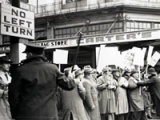
The 1951 waterfront dispute was the biggest industrial confrontation in New Zealand’s history. Although it was not as violent as the Great Strike of 1913, it lasted longer – 151 days, from February to July – and involved more workers.
-
Page 2 – Countdown to confrontation
New Zealanders generally accepted the hardships and restrictions of the war years as necessary in the fight against fascism. After the war, though, many began to demand a
-
Page 3 – War on the wharves
With New Zealand’s vital export trade at stake when the wharves came to a standstill, the government declared a state of emergency on 21 February.
-
Page 4 – Division and defeat
The watersiders’ militancy had isolated them from most unionists and Walter Nash’s Labour Party Opposition sat uncomfortably on the fence, denouncing government repression but
Homosexual law reform

The homosexual law reform campaign moved beyond the gay community to wider issues of human rights and discrimination. Extreme viewpoints ensured a lengthy and passionate debate before the Homosexual Law Reform Act was passed in July 1986.
-
Page 2 – Setting the scene
There is a long history of opposition to sexual activity between men and an equally long history of legislation criminalising this activity.
-
Page 3 – Birth of the gay movement
Social and political groups for homosexuals in New Zealand began with the Dorian Society in the 1960s. Within a decade, sexual and social liberation was in the air.
-
Page 4 – Reforming the law
To bring about change in the law, the gay movement needed a parliamentary champion. It found one in Labour MP Fran Wilde.
-
Page 5 – Further information
Further information relating to Homosexual Law Reform.
1947 Greymouth beer boycott
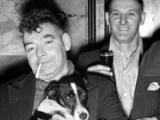
What would it take for West Coasters to boycott their beloved beer? Greymouth hotel-keepers found out in 1947, when an organised attempt to raise the price of beer sparked one of the most effective consumer boycotts ever seen in New Zealand.
-
Page 3 – The boycott begins
In mid 1947 there were rumours that the price of beer was about to rise. It was a decision that no publican wanted to take alone because customers might move to another hotel
-
Page 4 – Industrial action
After the first week of the Greymouth beer boycott it became clear that the Licensed Victuallers' Association (LVA), supported by the breweries, was not going to yield.
-
Page 5 – Working Men’s Clubs
A number of Working Men's Clubs had been established in major urban areas since the late 19th century, but there were none on the West Coast. The beer boycott provided a
-
Page 6 – End of the 1947 beer boycott
By early December 1947 business was gradually returning to some pubs in the larger towns, but the boycott was still effective in smaller centres.
-
Page 7 – Further information
This feature was written by Simon Nathan with assistance from Margaret Hurst (National Library of New Zealand), and produced by the NZHistory.net.nz team.
The 1913 Great Strike
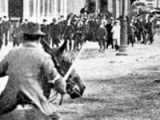
The Great Strike of 1913 was in fact a series of strikes between mid-October 1913 and mid-January 1914. It was one of New Zealand’s most violent and disruptive industrial confrontations.
-
Page 4 – The 1913 strike in Wellington
Because the strike threatened their livelihoods, rural men were keen to volunteer as special constables.
-
Page 5 – The 1913 strike in Auckland
Watersiders in Auckland began to strike in support of those in Huntly and Wellington.
-
Page 6 – The 1913 strike in the South Island
Although the 1913 strike had its biggest impact on Auckland and Wellington, the South Island's cities and mining towns were also affected.
-
Page 7 – The defeat of the 1913 strike
The seizure of the wharves in Wellington and Auckland greatly reduced the strikers’ industrial power. Similar takeovers by ‘scab’ arbitration unions soon happened in other
Mana motuhake: Māori resistance to colonisation
Waitangi Day
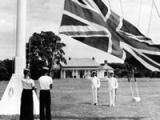
Every year on 6 February, New Zealand marks the signing of the Treaty of Waitangi in 1840. For most people, Waitangi Day is a holiday; for many, and especially for Māori, it is a time for reflecting on the Treaty and its place in modern New Zealand.
-
Page 6 – Waitangi Day 1980s
The 1980s brought changes in the way Waitangi Day was marked officially, as well as growing Māori protest.
-
Page 7 – Waitangi Day 1990s
In the 1990s Waitangi Day events became a focus for protests about sovereignty.
-
Page 8 – Waitangi Day in the 21st century
Waitangi Day in the 21st century has been linked more closely with New Zealand identity, and events have expanded beyond Waitangi itself. Protests have continued, and
Māori King movement origins
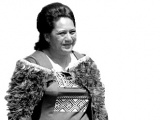
In May 2008 Māori gathered at Ngāruawāhia to celebrate the 150th anniversary of the formation of the Kīngitanga, or Māori King Movement. The current king, Te Arikinui Tūheitia Paki, was crowned in August 2006 following the death of his mother, Dame Te Atairangikaahu.
- Page 6 - A challenge to European authority?Pōtatau established a boundary between the territory in which his authority held sway and that of the governor: 'Let Maungatautari [River] be our boundary. Do not encroach on
Anzac Day
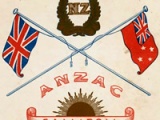
First observed in 1916, Anzac Day - 25 April - commemorates those killed in war and honours returned servicemen and women. The ceremonies held at war memorials around the country, and in places overseas where New Zealanders gather, are rich in tradition and ritual.
-
Page 7 – Modern Anzac Day
Each generation of New Zealanders redefines Anzac Day to suit the mood of the times, and the last 50 years has seen much redefinition.
The Cold War
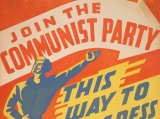
Although the origins of the so-called Cold War can be traced back to the Bolshevik revolution of 1917, this intense ideological struggle between the Western powers and the Soviet Union really began after the Second World War.
- Page 6 - Protest and dissentThe end of the Vietnam War shifted the focus of the Cold War away from Asia and New Zealand's need for ‘forward defence’ diminished. These changes, together with the
New Zealand in Samoa
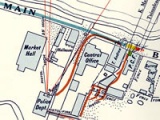
New Zealand was ill-equipped to cope with the Western Samoa mandate it was allocated by the League of Nations in 1920. The Mau movement's passive resistance culminated in the violence of 'Black Saturday', 28 December 1929, which left 11 Samoans and one New Zealand policeman dead.
-
Page 6 – Stepping up the Mau campaign
In January 1928 Mau policeman, dressed in a uniform of a purple lavalava with a white stripe, began enforcing a sā - ban - on European stores in Apia.
-
Page 7 – Black Saturday
One New Zealand policeman and up to 11 Samoans, including Tupua Tamasese Lealofi III, were killed in Apia on Black Saturday - 28 December 1929.
Suffrage 125
-
This case study examines New Zealand's involvement in the nuclear debate of the 1970s and 1980s, culminating in a breakdown of the ANZUS alliance in 1985. With
The Royal New Zealand Navy
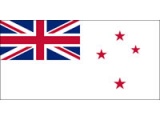
Seventy years old in October 2011, the Royal New Zealand Navy is today an integral part of the New Zealand Defence Force. But its 1941 establishment was the result of a long process of naval development.
- Page 7 - New directionsThe RNZN’s independence as a service came to an end when the Ministry of Defence (created in July 1963) was reconstituted to incorporate all three armed services on 1 January
Biographies
-
 Cooper, Whina
Cooper, Whina
Te Rārawa leader and woman of mana Dame Whina Cooper spent her whole life fighting for Māori land rights. As a 79-year old she led Māori land protest marchers as they walked from Te Hāpua (in the far north) to Parliament, arriving on 13 October 1975.
Read more... -
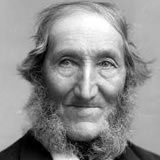 Parnell, Samuel Duncan
Parnell, Samuel Duncan
Labour Day, a public holiday in New Zealand since 1900, is a suitable occasion to pay tribute to Samuel Parnell, who achieved fame as the founder of the eight-hour working day in New Zealand.
Read more... -
 Evans, Frederick George
Evans, Frederick George
Fred Evans' violent death during the 1912 Waihi miners' strike made this otherwise obscure figure into a martyr of the New Zealand labour movement.
Read more... -
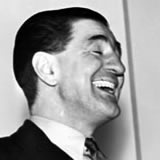 Lee, Alfred Alexander
Lee, Alfred Alexander
A charismatic ex-soldier, orator and propagandist, John A. Lee was a dynamic figure in the Labour Party from the 1920s until 1940, when he was expelled for attacking the leadership of M.J. Savage.
Read more...
Related keywords
- women in politics
- trade unions
- wellington city
- 1913 strike
- westport
- auckland city
- nelson city
- shipping
- ponsonby
- public service
- WW1 home front
- crime
- maungaturoto
- WW1 stories
- dunedin
- workers rights
- basin reserve
- huntly
- coal mining
- taupiri
- international relations
- pacifism
- nuclear free
- david lange
- fred evans
- nightcaps
- greymouth
- northland
- 1970s
- environment
- buller
- runanga
- brunner
- blackball
- lyttelton
- demonstrations
- denniston
- child welfare
- womens liberation
- labour party
- red feds
- maps
- 1980s
- nuclear ships
- south africa
- apartheid
- suffrage 125
- economy
- palmerston north
- maori land
- alcohol
- drink
- mururoa protest
- royal new zealand navy
- parliament
- air transport
- rugby
- springboks
- strikes
- william massey
- peace celebrations
- cook islands
- rarotonga
- waikato
- hamilton
- roadside stories
- whanganui city
- badges
- police
- waihi
- vietnam war
- homosexuals
- cold war
- samoa
- mau movement
- pacific peoples
- great depression
- parliament buildings
- beehive
- suffrage campaign
- national council of women
- anna stout
- waterfront dispute
- waitangi day
- poster
- american forces
- war objects
- jayforce
- conscientious objection
- south african war
- wilhelmina bain
- boer war
- merchant marine
- women
- land claims
- hikoi
- ngati poneke
- immigrants
- irish
- archibald barrington
- tainui
- whanganui river
- eva rickard
- gay rights
- radio broadcasts
- social policy
- television
- libraries
- norman kirk
- robert muldoon
- gisborne
- sidney holland
- league of nations
- 1920s
- olaf nelson
- public holidays
- race relations
- henry fish
- national party
- fintan patrick walsh
- sesquicentenary
- treaty claims
- writing
- john a lee
- MPs
- cartoon
- invercargill
- george forbes
- new zealand wars
- waima
- hone heke ngapua
- nga tamatoa
- flags
- treaty of waitangi
- michael joseph savage
- waitangi tribunal
- bastion point
- maori language
- rainbow warrior bombing
- greenpeace
- maori
- maori leaders
- kingitanga
- wiremu kingi
- potatau te wherowhero
- united tribes
- tino rangatiratanga
- anzac day
- WW2
- RSA
- religion
- victoria university
- music
- music month
- punk
- TVNZ
- children
- anzus
- riots
- eden park
- law reform
- law
- labour day
- samuel parnell
- helen clark
- moutoa gardens
- whanganui war
- whina cooper
- moustaches
- athletic park
- ngati whatua
- business
- keith holyoake
- all blacks
- olympics
- new zealand day
- matiu rata
- national identity
- WW1
- gallipoli campaign
- maori in war
- recruitment
- te reo māori
- meri mangakahia
- americans
- te puea herangi
- dawn service
- fran wilde
- norman jones
- health
- human rights
- HART
- christchurch
- poverty bay rugby
- maori sport
- 1950s
- kate sheppard
- 1960s
- athletics
- queen street
- sport
- racism
- gleneagles agreement
- international trade
- te rarawa
- united nations
- george nepia
-
Main image: Opera House strike meeting poster
Poster advertising strike meeting at Wellington Opera House in 1913.

